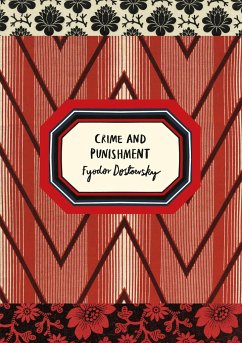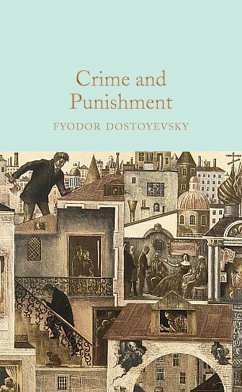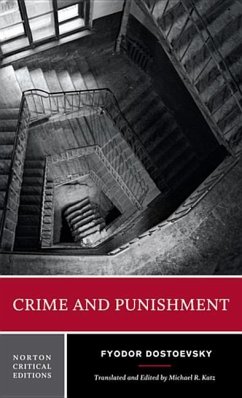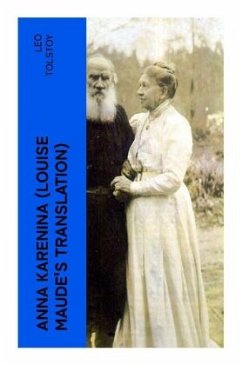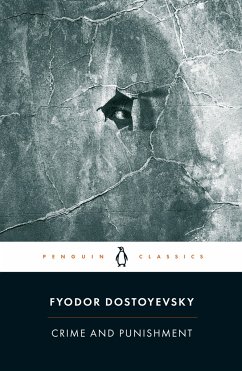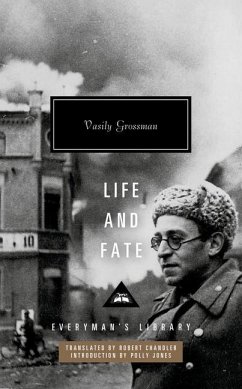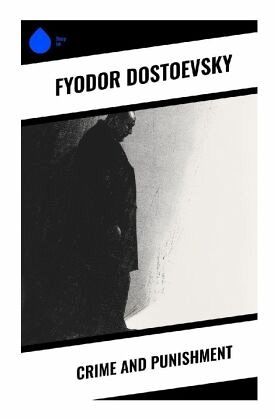
Crime and Punishment
Versandkostenfrei!
Versandfertig in 6-10 Tagen
20,10 €
inkl. MwSt.
Weitere Ausgaben:

PAYBACK Punkte
0 °P sammeln!
In "Crime and Punishment," Fyodor Dostoevsky delves into the psychological complexities of morality and guilt through the harrowing journey of Raskolnikov, a former student who rationalizes the murder of a pawnbroker. The novel is characterized by its intricate narrative style, blending realism with existential philosophy, which immerses readers in the tumultuous mind of its protagonist. Set against the backdrop of St. Petersburg in the 1860s, a time of social upheaval and moral questioning, Dostoevsky's exploration of themes such as redemption, societal alienation, and the nature of evil, as ...
In "Crime and Punishment," Fyodor Dostoevsky delves into the psychological complexities of morality and guilt through the harrowing journey of Raskolnikov, a former student who rationalizes the murder of a pawnbroker. The novel is characterized by its intricate narrative style, blending realism with existential philosophy, which immerses readers in the tumultuous mind of its protagonist. Set against the backdrop of St. Petersburg in the 1860s, a time of social upheaval and moral questioning, Dostoevsky's exploration of themes such as redemption, societal alienation, and the nature of evil, as well as the profound use of symbolism, positions the book as a cornerstone of Russian literature and a precursor to modern psychological narratives. Dostoevsky, drawing from his own experiences with poverty, imprisonment, and deep existential queries, ingeniously combines autobiography with storytelling. His philosophical underpinnings often reflect his tumultuous life, including his encounters with nihilism and radical thought, all of which permeate the fabric of "Crime and Punishment." This novel also serves as a critique of utilitarianism and the ethical dilemmas that arise from it, illustrating the devastating consequences of a detached moral compass. I recommend "Crime and Punishment" not only for its gripping tale of moral conflict and human resilience but also for its profound reflection on the nature of crime and the possibility of redemption. Readers will find themselves questioning their own moral beliefs while being captivated by Dostoevsky's masterful prose and deep psychological insight.




